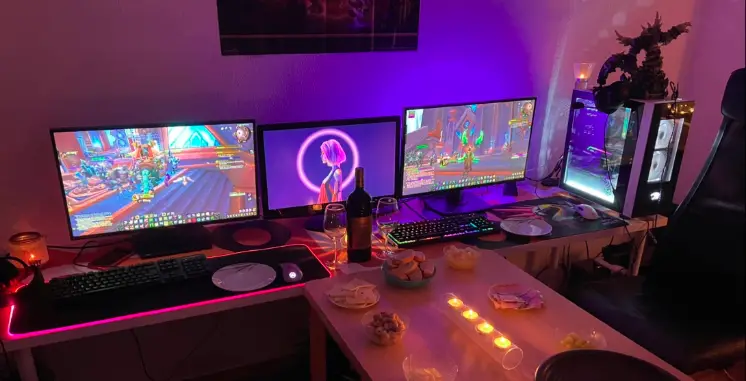
In the vast realm of video gaming, the act of collecting games often takes on a life of its own. A myriad of motivations drive gamers to amass an extensive collection, creating shelves adorned with titles that, for various reasons, remain untouched by gameplay. In this exploration, we unveil the intriguing and diverse reasons behind the phenomenon of collecting video games we never play.
2O. Collector Badges
Gamers often view their collection as a badge of honor, displaying their passion for the medium. The act of collecting itself becomes a rewarding pursuit, and owning a diverse array of games, even if unplayed, contributes to their identity as a game collector.
19. Game Collector
The very essence of being a game collector involves acquiring games for the sake of ownership rather than immediate play. The joy lies in building a comprehensive collection, and the sentiment of ownership often surpasses the urgency to play each individual game.
18. Limited Editions
Limited editions often come with exclusive artwork, physical items, or in-game content. Collectors are drawn to these unique offerings, making the purchase not just about playing the game but also about obtaining the special features associated with the limited edition.
17. Nostalgia
Nostalgia plays a significant role in game collecting. People often buy games from their past or ones that remind them of cherished memories. The act of acquiring these nostalgic games serves as a way to reconnect with the past, regardless of immediate play.
16. You Can Afford it Now
Sometimes, financial constraints may have prevented the purchase of certain games in the past. When affordability is no longer an issue, individuals may seize the opportunity to buy games they couldn’t access earlier, even if they don’t have immediate plans to play them.
15. Habit
For habitual gamers or collectors, the act of buying games becomes routine. It’s a behavior ingrained in their gaming lifestyle, and they continue to acquire titles almost automatically, regardless of the immediate intention to play.
14. Friends’ Recommendations
The influence of friends in the gaming community is powerful. Recommendations from peers can lead to game purchases, even if the buyer doesn’t have the time or inclination to play the suggested titles right away.
13. Making it Legal
Some individuals may buy games to support the developers and publishers legally. The motivation is to contribute to the industry and adhere to ethical gaming practices, even if the purchased games remain unplayed.
12. Future Plans
Purchasing games with the intention to play them in the future is a common practice. Whether it’s saving a game for a specific occasion or a less busy period, the anticipation of future enjoyment is a driving factor.
11. Peer Pressure
Similar to friends’ recommendations, peer pressure within gaming circles can influence purchases. The desire to fit in or stay relevant within the gaming community may lead to acquiring games without an immediate commitment to play.
10. Game Out-Date / Doesn’t Work
In the fast-paced world of gaming, technology evolves quickly, and older games may become outdated. Additionally, technical issues or compatibility problems can arise, rendering certain games unplayable on newer systems. Despite these challenges, collectors might still retain these games for sentimental value or as artifacts of gaming history.
9. Social Media Hype
The influence of social media can drive game purchases. Games trending on platforms like Twitter, YouTube, or streaming services might attract attention, leading to acquisitions even if the buyer is not immediately interested in playing. The desire to be part of ongoing gaming conversations contributes to this phenomenon.
8. Too Many Games At Once
Sometimes, gamers find themselves overwhelmed by the sheer number of titles in their collection. The abundance of options can create a paradox of choice, making it challenging to commit to playing a specific game. As a result, some games may remain unplayed due to the abundance of alternatives.
7. Bought it on a Different Platform
With the availability of games across various platforms, a collector might purchase a game on one platform, only to find it more convenient or enjoyable on another. Despite owning the title, they might not immediately play it on the original platform of purchase.
6. Not Ready to Commit
Some games require a significant time commitment or emotional investment. Collectors might hesitate to start games with intricate narratives or extensive gameplay, choosing to postpone playing until they are mentally prepared for the commitment required.
5. Spoiler
Fear of spoilers can deter gamers from starting a particular title. If a game’s plot or key elements have been revealed online, some players may delay playing to avoid having the experience spoiled for them.
4. Bundles
Bundles and package deals often offer a collection of games at a discounted price. While this can be an attractive offer, not all the included games may align with the player’s preferences or time availability, resulting in some titles remaining unplayed.
3. Bought for Someone Else
Purchasing a game as a gift for someone else is common. If the intended recipient doesn’t show immediate interest or already owns the game, it might end up in the buyer’s collection, remaining unplayed.
2. Great Price / Special Offer
Irresistible prices or special offers can prompt impulse purchases, even if the buyer is not particularly interested in playing the game at that moment. The perceived value often outweighs the immediate need to play.
1.Time
Perhaps the most straightforward reason, the scarcity of time can lead to games piling up in a collection. Despite the desire to play, other life commitments may take precedence, causing some games to remain untouched.
